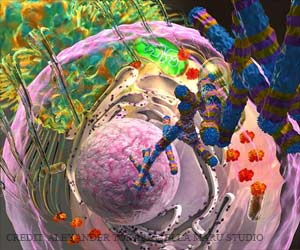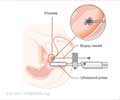
‘The key mechanism that causes drug-resistance in prostate cancer has been identified by a new study that reports that an already approved drug may be helpful in fighting against this resistance.’
Tweet it Now
"We provide evidence that a drug, already in development, could help fight the cancers that develop resistance to CDK4/6 inhibitors," said senior author Karen E. Knudsen, PhD, Director of the Sidney Kimmel Cancer Center at Jefferson Health. "This could potentially offer patients a more effective therapy to try when the CDK4/6 inhibitors fail." In order to first explore how tumors become resistant to CDK4/6-inhibitor therapy, Dr. Knudsen and her team, including first author Renée de Leeuw, used a cellular model of prostate cancer that let them hone in on the process of resistance. The researchers found that as prostate cancer cells become resistant to CKD4/6-inhibitors they rewire the protein pathways essential for their survival. The transcriptome of the cancer cells fundamentally shifts. This rewiring causes the cells to begin to depend on a different pathway for their growth, the MAPK-6 or MEK pathway, which normally does not play a big role in prostate cancer.
The researchers also showed that when the prostate cancers develop resistance to the CDK4/6 inhibitors and switch to being dependent on the MAPK-6 pathway, the cancer cells become much more aggressive, spreading and seeding metastases more rapidly in mouse models of the disease.
"However, this new dependence offers us an opportunity," said Dr. Knudsen. "MEK-inhibitors are currently being tested and in clinical trials. While these drugs show limited impact on earlier stages of disease they may become effective therapies as prostate cancer cells, and potentially other cancers as well, develop CDK4/6 resistance. By hitting cancer cells with one therapy, namely the CDK4/6 inhibitors, followed by a MEK inhibitor, we block the cancer's avenues of escaping death one by one."
MEK inhibitors have been approved for treating melanoma and are currently being tested for prostate cancer in clinical trials. But there are no currently open trials investigating the combination treatment with a MEK and CDK4 inhibitors together. "These studies will be instrumental in guiding the next generation of clinical trials with CDK 4/6 inhibitors in prostate cancer and gives us a strong rationale to target MEK pathway," said co-author W. Kevin Kelly, DO, Professor of Medical Oncology, Director of the Division of Solid Tumor Oncology, and leader of the Prostate Cancer Program at the Sidney Kimmel Cancer Center, which is recognized by the National Cancer Institute as one of eight Prostate Cancer Centers of Excellence.
Advertisement
Source-Eurekalert












